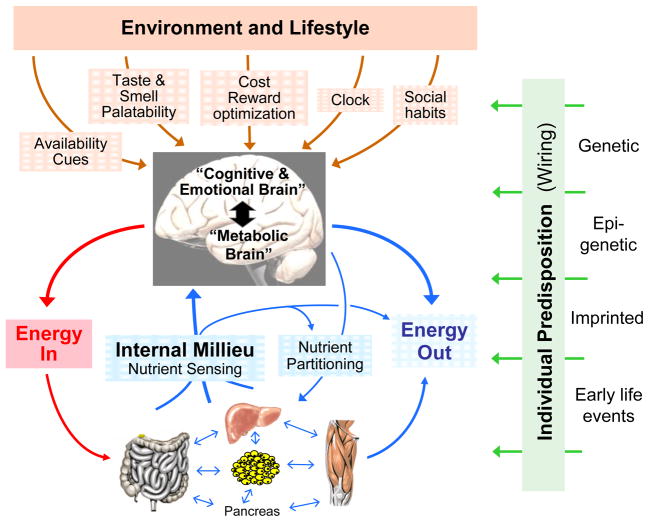Fig. 1.
Schematic diagram showing the major factors determining neural control of appetite and regulation of energy balance. The brain monitors the internal milieu through a number of hormonal and neural nutrient sensing mechanisms and is under constant influence of the environment and lifestyle through the senses and mainly the cognitive and emotional brain. The two streams of information are integrated to generate adaptive behavioral (food intake) and autonomic/endocrine responsses determining nutrient partitioning, energy expenditure, and overall energy balance. All of the peripheral and central signaling steps are subject to individual predisposition either through genetic, epigenetic, or non-genetic early life imprinting mechanisms.

